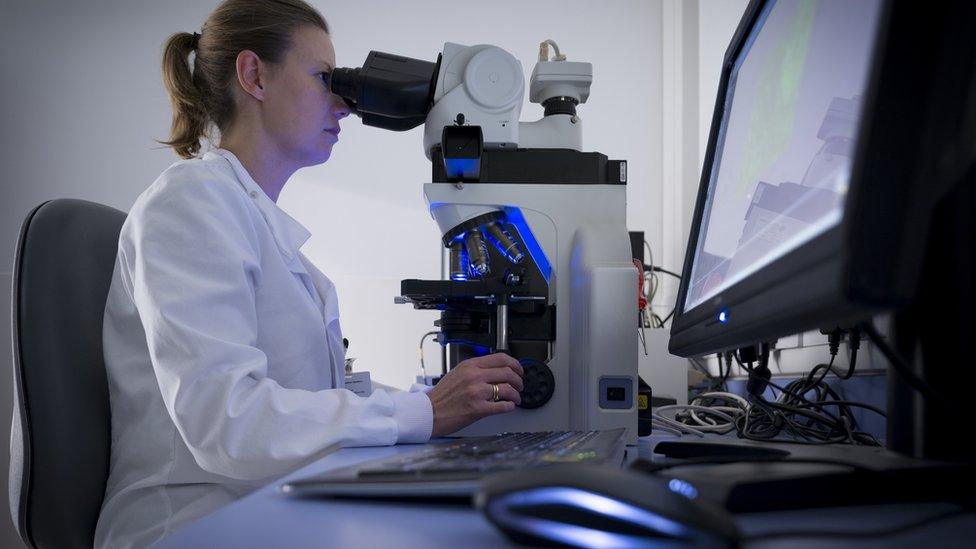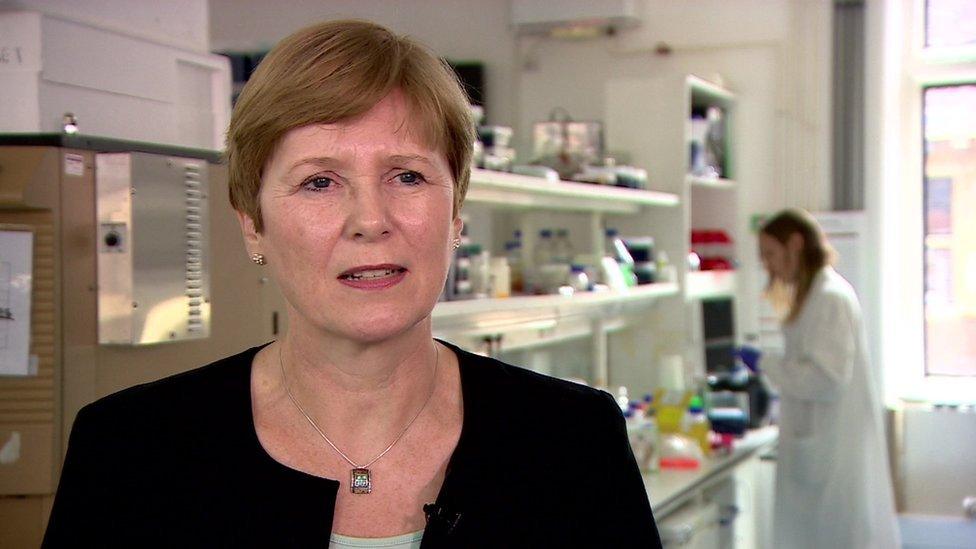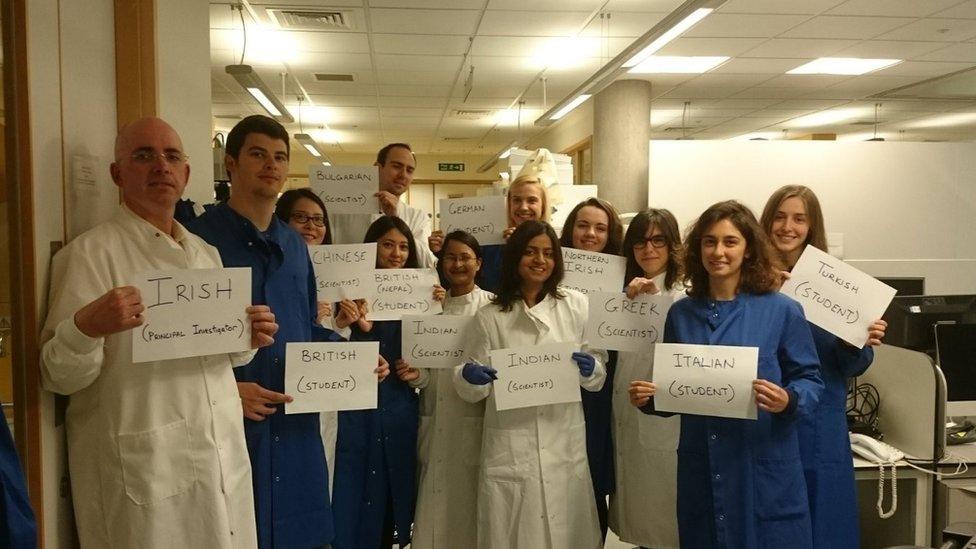Academies warn Brexit 'damaging science'
- Published

The UK's national academies representing science, medicine and engineering have told the government that Brexit is already harming science.
A joint letter, external from seven academies says that the UK's world-leading position in these areas is in jeopardy.
The national academies represent the best researchers in their fields.
They call for the government to make a "bold public commitment" to prioritize research in Brexit negotiations.
Individual researchers have also spoken about the effects of Brexit on their funding and collaborations.
The joint letter was written by the presidents of the Royal Society, the Royal Academy of Engineering, the Academy of Medical Sciences, the British Academy, the Royal Society of Edinburgh, the Royal Irish Academy and the Learned Society of Wales.
It states: "The UK's outstanding research and innovation base is central to our economic, social and cultural well-being.
"The result of the EU Referendum presents a challenge to maintaining this excellence. The current uncertainty is having immediate implications and raises many questions.
"We stand ready to help ensure that Great Britain and Northern Ireland maintains its world leading position in research and innovation."
Funding gap
The academies say that ease of movement of researchers and students between the UK and EU countries is key to our future excellence and should be "reinforced".
"We believe it is vital that UK-based researchers and staff from other EU countries are given assurances that they and their dependents will be able to continue to live and work here. Similarly, opportunities need to be safeguarded for UK researchers to gain experience in other EU countries."
UK universities receive £850 million a year from European Union funds. A condition of full access to those funds is free movement of people.
Following the referendum result it is unclear whether the UK would continue to be eligible for EU research funding.
The uncertainty has already resulted in some UK research groups and small businesses losing funding.
The academies call for "urgent discussions" on how the government will address any funding gap in both the short and medium term.

Of equal concern, they add, is the loss of access to networks that have been built over decades and help UK research groups and businesses stay at the cutting edge of research.
"It is... the intrinsically collaborative nature of these programmes that allows UK researchers to achieve more than they would alone. Similarly, EU programmes provide opportunities for industrial competitors to collaborate with each other and work together towards common goals, often for societal benefit."
The academies also ask that UK experts remain "fully engaged" in shaping the development of standards and regulations and to safeguard UK research by "seeking the closest achievable association with the EU research programmes".
- Published19 July 2016

- Published30 June 2016

- Published2 July 2016
